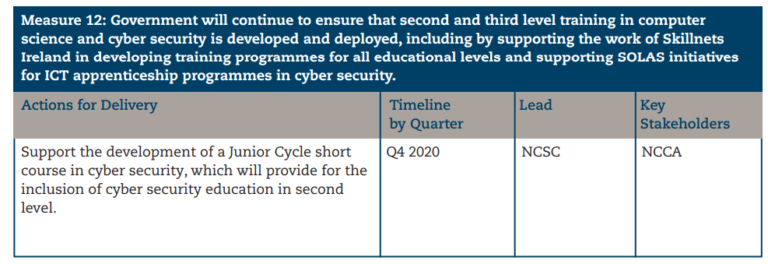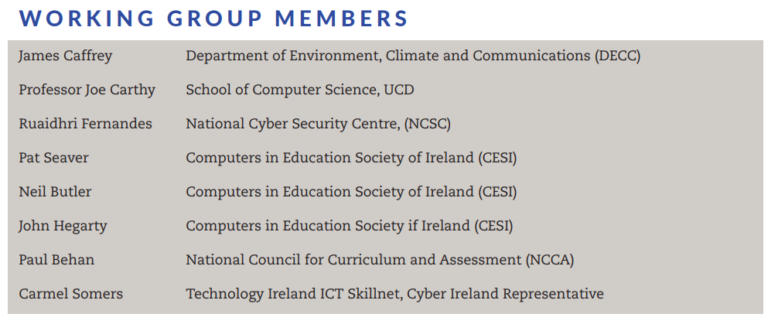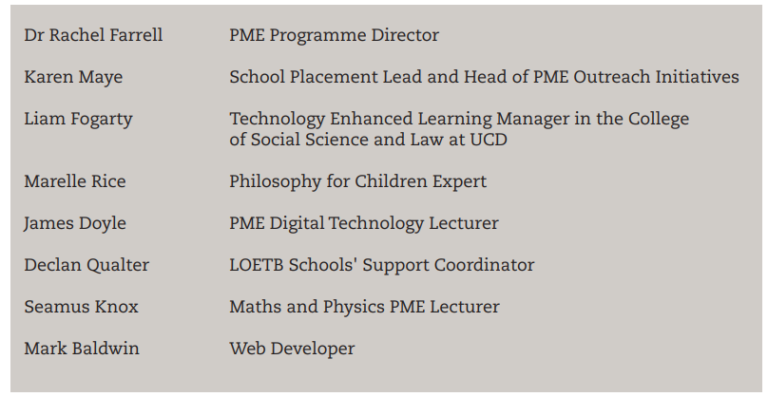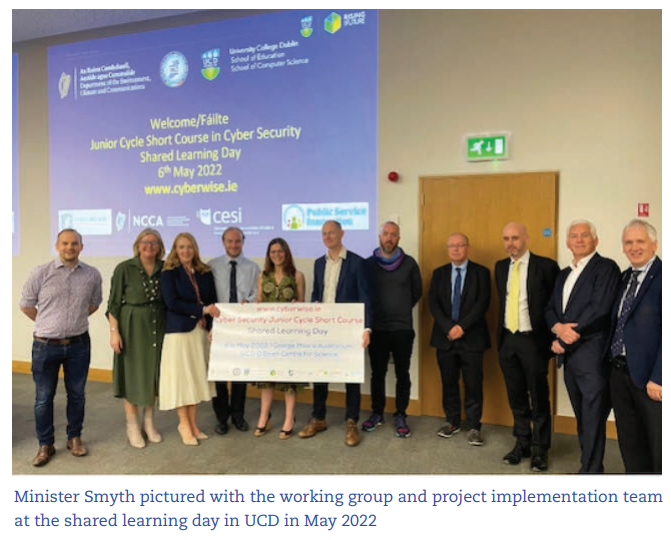Background
DECC is the lead Government Department for cyber security in the State. It oversees the implementation of the National Cyber Security Strategy 2019-2024. A key theme of the Strategy centres on developing the capacity of the State, research institutions, businesses, the public sector and of the people to both better understand and manage the nature of the challenges we face in this space. ln particular, measures 12 of the Strategy include actions on developing cyber security education in second level education as outlined in table 1. below

In Spring and early Summer of 2020, discussions took place with the NCCA on how to realise this objective of a developed Short Course in Cyber Security. The resultant was an agreed scoping document that recognised the primacy of an education stakeholder led approach.
In establishing a consultative working group of stakeholders in July 2020, it was stated that the underlying objective of the Short Course was to provide for broadly based cyber security education with a multidisciplinary approach encompassing aspects of psychology, law, ethics, communications and crisis management as well as computer science. In the context of digitalisation of society, all students, regardless of gender and not just those with STEM aptitudes need to be familiar with resilience and security in the online world. The course should also influence the content of and could lead to greater uptake of the curriculum subject Computer Science in Senior Cycle. The course needs to be sufficiently appealing to schools and distinct from alternative short courses.
Working Group
ECC facilitated the establishment of a consultative working group comprising an interdisciplinary team chaired by Professor Joe Carthy from UCD School of Computer Science. Members from the NCSC, Cyber Ireland, the NCCA, and CESI provided technical, industry, educational and curriculum development insights respectively. The Department of Education was also invited to join the working group in an observer capacity. The full working group is listed below with full biographies in the appendix.

The working group was tasked with:
1. Developing the short course specification using the template provided by the NCCA and in accordance with the scoping document. The course specification should be flexible and adaptable enabling as wide a range as possible of schools, teachers and students to take up the course;
2. Identifying the essential resource requirements for schools undertaking this course, including training supports and providing practical solutions on how such requirements could be met for a pilot implementation in a small, yet diverse number of secondary schools;
3. Overseeing the pilot implementation of the short course, monitoring developments and providing high level support where necessary and appropriate;
4. Evaluating the short course pilot implementation in schools and providing for feedback with lessons learnt regarding course content and delivery, and;
5. Reviewing implementation of the short course by mid-2022 and making recommendations regarding the further development of a cyber security course at Junior Cycle that can be made available to schools.
It was agreed that a project team would be needed to implement the Short Course development project under the guidance of the consultative working group. The working group approached UCD School of Education in Autumn 2020 to support the design and implementation of the short course.
DESIGN AND IMPLEMENTATION TEAM
UCD School of Education has a proven track record in Democratic Pedagogical Partnerships (Farrell, 2021) and is at the forefront of technology enhanced learning in Initial Teacher Education. The multi-disciplinary UCD design and implementation team is outlined below with full biographies in the appendix.


